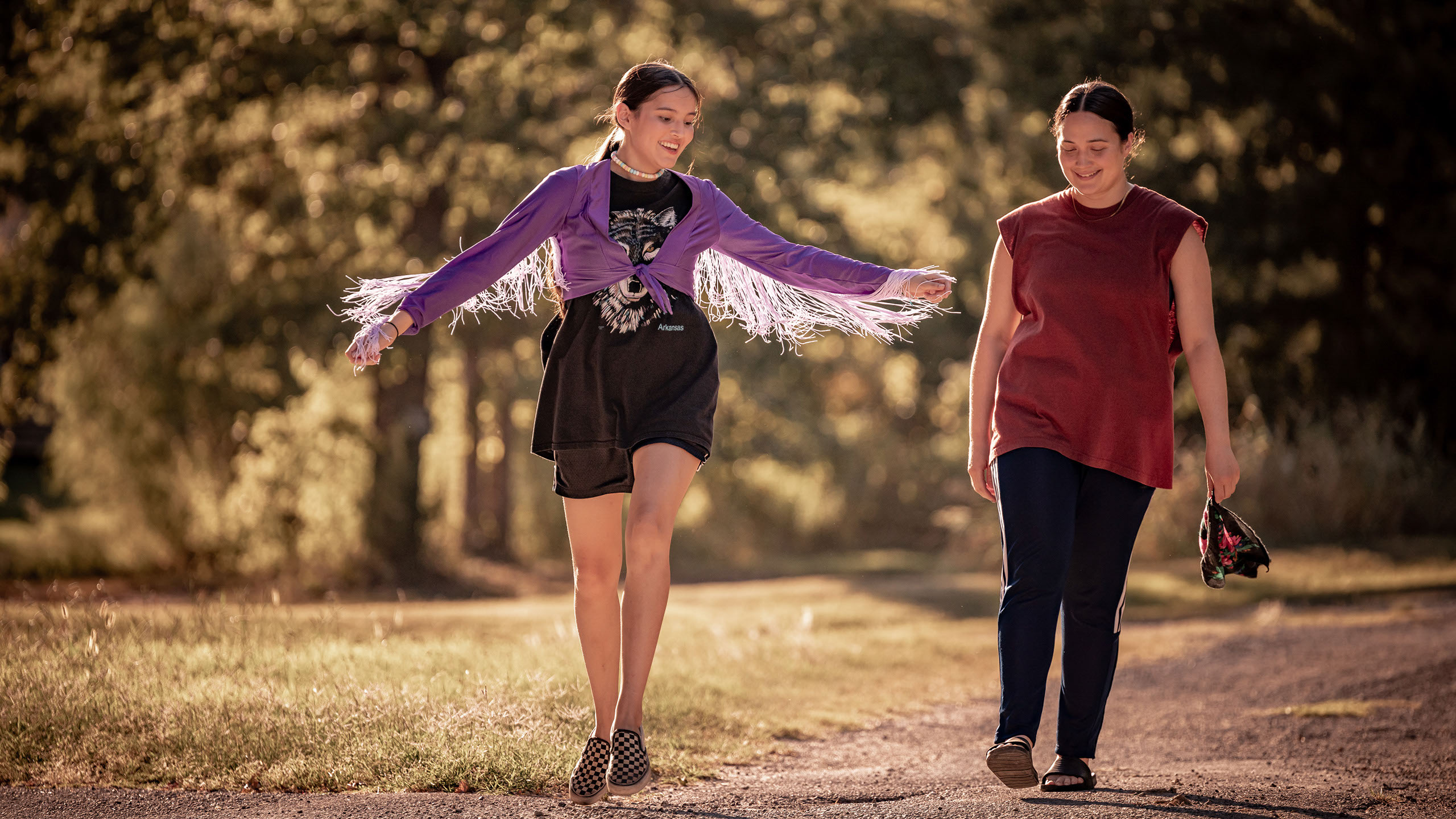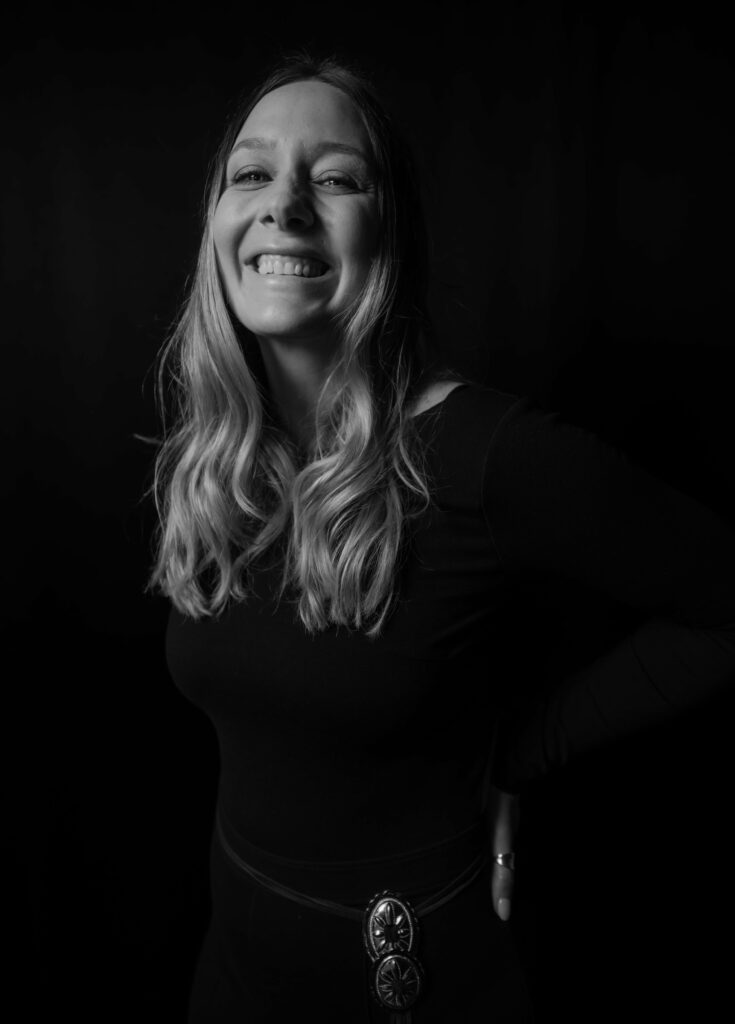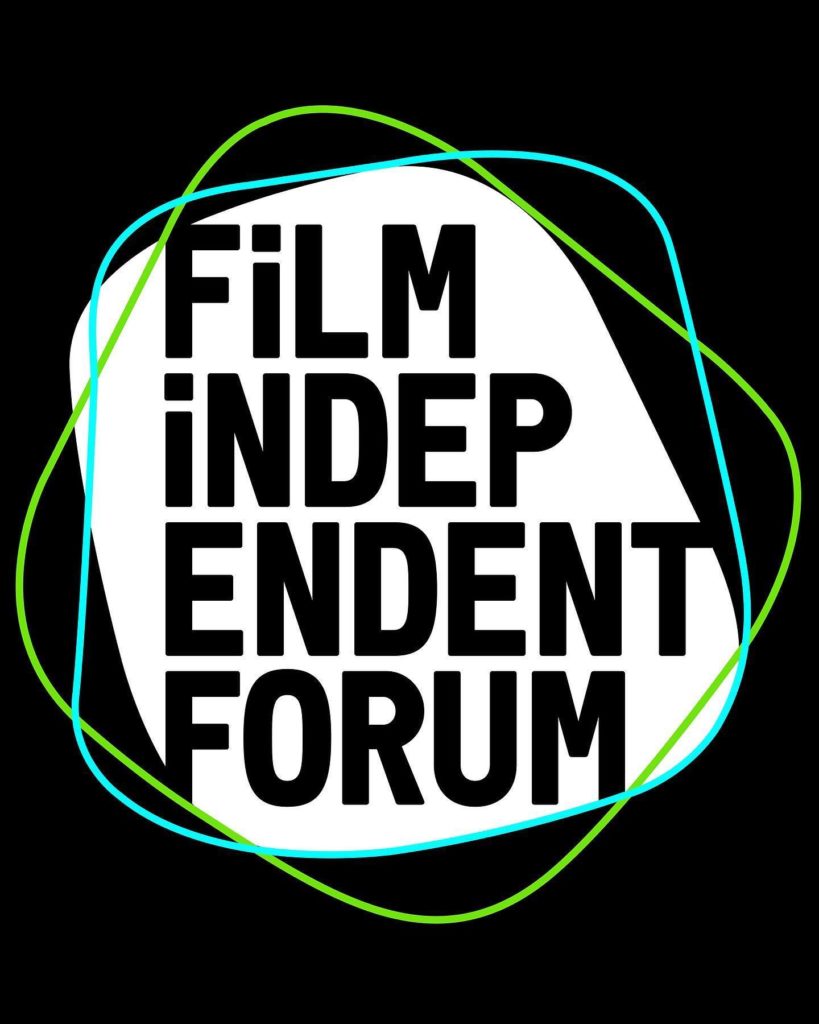ERICA TREMBLAY was inspired early on by stories she was told by family members and her community from the Seneca-Cayuga Nation. Storytelling transitioned to amateur filmmaking and eventually a video production career in the advertising and corporate worlds. With continuing aspirations to tell fuller stories on a cinematic level, Tremblay applied for the Sundance Native Lab, where she was accepted and workshopped her short film Little Chief. That short (starring acclaimed actor Lily Gladstone) premiered at the 2020 Sundance Film Festival. Tremblay’s career led her to television, including FX’s Reservation Dogs as a writer and director, and AMC’s Dark Winds as an executive story editor.
Tremblay was also hard at work on her feature debut as a writer, director, and producer, FANCY DANCE. Co-written with Miciana Alise, Fancy Dance made its way through the Sundance Screenwriting, Directing, and Creative Producing Labs, and was awarded the Walter Bernstein Screenwriting Fellowship, Maja Kristin Directing Fellowship, SFFILM Rainin Grant, and the Lynn Shelton Of a Certain Age Grant. The film was unveiled at the 2023 Sundance Film Festival before going on to SXSW, Sun Valley Film Festival, Outfest LA, and BFI London Film Festival.
Fancy Dance stars Gladstone as Jax, a woman dealing with her sister’s disappearance and raising her niece Roki (Isabel Deroy-Olson) as the investigation stalls. When Roki is removed from Jax’s care by social services, the aunt and niece run away to head for the state powwow to continue a family tradition in the midst of tragedy. Ryan Begay, Crystle Lightning, Audrey Wasilewski, and Shea Whigham co-star in the film, which Apple will release in select theaters on June 21, before streaming globally on Apple TV+ on June 28.
We talked to the co-writer, director, and producer of Fancy Dance, Erica Tremblay, about her inspirations for the film and her process of getting it made.
——
COLIN McCORMACK: Could you speak about your initial inspiration for Fancy Dance?
ERICA TREMBLAY: At the time, I was doing a language immersion program in my ancestral language, Cayuga, and I learned that the word for mother is “kno:ha” and the word for your aunt on your mother’s side is “kno:ha:ah,” which means little mother. I loved seeing the strength of matrilineal kinship inside the language and inside of Haudenosaunee culture, so I wanted to tell a modern-day story of an aunt and a niece. I had this image of these two women dancing together and then it became a fun game of how to get them there. I brought on my co-writer Miciana Alise, an incredible Tlingit writer, and we embarked on writing the story together.
CM: You and Miciana first connected through the Sundance Native Lab?
ET: Yeah, I had done a short film through the Sundance Indigenous Program and Miciana was also a fellow that year. She was taking through a script she’d written, a rom-com, and I really loved it. When I was imagining this world of Roki and Jax, I thought it needed to have some rom-com sensibility to it in the sense that it’s two people falling in and out of favor in their relationship as they’re moving along in the story. Miciana is also just really funny. Some of the topics of this film are heavy and it was nice not to be alone in them every day. To have Miciana as a partner in this, we could take the weight off of each other on certain days and support each other as we were working through the project.
CM: You participated in various labs and programs and Miciana is one of the connections formed there. Were there other relationships formed or lessons that were imparted at those labs that you’ve carried with you into your career?
ET: Oh, absolutely. The Sundance Labs have been so formative in my career, not just as a filmmaker but as a creator and storyteller in general. I started out in the Indigenous Labs and have been so lucky to do the Screenwriters Lab and the Directors Lab. One of my very first mentors at Sundance was Sterlin Harjo, who was then my showrunner on Reservation Dogs and I’ve gotten to work with him on various projects. You meet this community that sticks with you over the years. I was able to call up my mentors that I’d had over the years like, “Hey, read this draft of the script,” or, “I’m languishing in my cut. I need another set of eyes on this.” The generosity of the mentors through those labs, I can’t express how grateful I am, especially as a person who didn’t even realize women could direct movies until I was 21 years old. I grew up in the ’90s without the internet and I didn’t go to film school. I didn’t even really know that was a viable option for me as a career until I was 20 years old, so having Sundance and having support in that formal way has absolutely been a key to my career and my success as a storyteller.
CM: You and Miciana wrote the role of Jax with Lily Gladstone in mind, correct?
ET: Yeah, I’d made a short film with Lily called Little Chief and it was the first time we met, the first time we collaborated, and it was this incredible connection. Obviously, Lily is so talented you want to work with them again. How lucky am I that the two projects that I’ve worked on have had Lily as the lead? It was with the success of that short that I [realized], Okay, people are interested in a world like this. People are interested in a character like this. People want to watch Lily. I called Lily up and said, “Hey, I’ve got this project in mind,” and so they were Jax from the jump. They read all the different drafts over the time that we were developing the script. Lily was very instrumental in creating Jax as a character as we were developing it on the page and then, of course, when we got to production.
CM: So you had one of your leads locked in very early. What was the experience like casting the role of Roki and finding a young actor for the counterpart to Jax?
ET: Very early on we knew we would need to do an extensive search for Roki. I’d actually listened to a podcast where some of the producers and the director of The Florida Project were talking about finding their child lead. [I thought] we should take a lesson from that podcast and do the same thing. Early on, when we got some of our first grant monies, the script wasn’t necessarily finished, we didn’t have financiers, and we didn’t know that this would actually be a film, but we were like, “Let’s use this grant money to bring on a casting director and start the search for Roki.” In the hopes that if we ever make the film, we’ll have a little bit of a head-start finding this actor. We saw dozens of incredibly beautiful, talented young Indigenous actors, but I hadn’t quite seen Roki and found the person that I was looking for. I was casting an episode of Dark Winds at AMC and we were looking for a pregnant teenager and Isabel’s tape came across my desk. She looked way too young to play the pregnant teen we were looking for but I was like, “But I’m looking for a 13-year-old for my film.” So I reached out to our casting director Stacey Rice and I said, “Let’s find this this young woman’s reps,” and we had a call and she read and I knew immediately that that was Roki.
What was so beautiful was when Isabel and Lily met each other in prep — we had two weeks of prep where they did language immersion during the morning and then dance lessons in the afternoon — they were immediately bonded and immediately friends. That chemistry you see on screen was so present from the moment they connected. I remember it was while we were doing Fancy Dance that Lily was solidifying everything for their role in Under the Bridge. And [the Under the Bridge producers] were like, “Well, we’re looking for someone to play you as a younger character,” and Lily said, “I have the perfect person!” So while we were doing Fancy Dance, Isabel got cast as young Lily in Under the Bridge. So if I did nothing else with this film, I brought the two of those souls together and they’ve formed a really beautiful friendship, as have we all.

CM: Does your process as a director alter when you are working with a newcomer actor versus a well-established actor like Lily or Shea Whigham?
ET: This was my first feature and by the time we got there I think I had directed two episodes of Rez Dogs at that point, and then I had done my short. But this was a very big exploration for myself as a director. It was my first outing and such a personal story on such a big scale, so I went in every day [with] my motto: Trust your collaborators and don’t feel like you have everything on your shoulders. I know that Lily can do it all and we have a very great working relationship and a shorthand with each other in terms of director-actor. And Isabel is such a natural that I almost didn’t want to step in and do too much. Just let Isabel do her version of Roki.
Lily has this incredible ability to bring everyone with them in everything that they do. Clearly with their Oscars run last year, bringing all the Indigenous designers and actors and directors, they brought all of us with them. I didn’t treat any [actors] any differently. We were all on the ride together and it was a fun month that we all spent in the heatwave of Oklahoma in August. I think they’ve finally forgiven me or forgotten how hot it was [laughs].
CM: You mentioned briefly that you were in a language immersion program, so I was wondering if you could talk about having a language advisor on the film. How early did they come in and what type of services did they provide to the production?
ET: What was so magical about this film for me is that it was dreamt up and written while I was in language immersion, so I was heavily inspired by my language learning while I was writing with Miciana. Keysa Parker, our language consultant, was someone that I was in language immersion with, she was a part of my cohort. Very early on, we had a draft of the script and I sent it to another person in my language immersion and then my language instructor was also helping with words here and there. It was a major collective effort with my cohort and myself. Then one of the people in my cohort is a faithkeeper, so she was one of the people I was going to to help consult on the ceremonial aspects and make sure I was getting all those details correct, and also only showing what the community would want me to share.
For the first two weeks [the cast] did language immersion and they were learning basic phrases and sayings in Cayuga. Keysa was on set to help them with the Cayuga throughout the production of the film. As a language learner myself, I was able to help and we also had language as a cornerstone of the making of the film. We took these lanyards and took all the set calls, “Cut,” “Sound Speed,” “Action,” all of those things, and translated those into Cayuga. The crew was using Cayuga, and by the third day, everyone had them memorized. The language was a part of the process, it was a part of Jax and Roki’s communication on screen, and it’s so great now that this film can be a part of Cayuga revitalization.
CM: In terms of your career, you’re not a person who is waiting around for somebody to hand you an opportunity. You’re calling Lily Gladstone about a role that you want to write, you’re touching base with Miciana to collaborate. Is that something you learned as you were starting or have you always been a proactive person, getting the ball rolling on your own work?
ET: I’ve always had a want — and maybe even stretch that to a need — to tell stories. I remember being a little girl and sitting around in ceremony or listening to my aunts and uncles speak and I remember witnessing the physical manifestation of an audience leaning in to a storyteller. And I remember seeing that and being like, “I want to get people to do that!” I want to see people lean in. So I was always writing these little plays or trampoline routines or reenacting scenes from Dirty Dancing in the backyard with the neighbors. My mom bought me a VHS recorder at Goodwill, but again, at the time growing up before the internet was a thing, I was watching all the Tarantino movies and all the ’90s movies, but I just thought it was something I did for fun. I didn’t know that I could actually be a director or a writer.
When I discovered that it was an option I did have, I spent all these years trying to find a way to tell stories, whether it was buying a camera and self-funding with my friends and Kickstarter little documentaries, or working in advertising over many years because it was near cameras and lights and storytelling. I think I’ve always been trying to find that path. For me, filmmaking and storytelling are so much about community and collaborators so it’s natural for me to jump on the phone and say, “Hey Lily,” or, “Hey Miciana.” It’s like back to me being in the backyard, the bossy girl on the block saying, “Hey guys, come over. We’re doing a trampoline routine today.” [Laughs] I guess I still have that spirit of collaboration and trying to bring people together. And now calling up people and saying, “Hey, finance this movie,” or “Hey, distribute this movie.” It’s truly not going to happen in this industry [if you] sit around and wait for someone to come and discover all of the great ideas that you have. There’s certainly an amount of hustling and having a prowess in putting yourself out there, which is terrifying but also very rewarding at the same time.
__
We’d like to thank Erica for talking to us about FANCY DANCE. Learn more about the film on Apple TV+.
This interview has been edited for length and clarity.
If you’re an independent filmmaker or know of an independent film-related topic we should write about, email blogadmin@sagindie.org for consideration.



